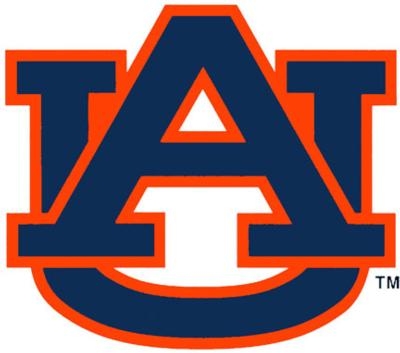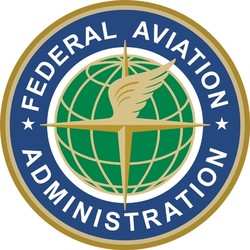Sat, Sep 21, 2013
Graduates From The Program Can Reach The Cockpit In 1,000 Hours
Aviation graduates from the Auburn University Raymond J. Harbert College of Business will be eligible to earn an Airline Transport Pilot (ATP) certificates with as few as 1,000 flying hours rather than 1,500 hours, as mandated by a new law which took effect on Aug 2.

The FAA recognizes the quality of graduates from top collegiate aviation programs, and is sanctioning those institutions to certify its students for hiring with as much as one-third fewer flight hours – modifying the August legislation. Auburn is currently one of just six such schools nationally with this designation, although other schools have submitted applications to join this group.
“This is another ... endorsement of the quality of the aviation programs at Auburn,” said Dale Watson, Director of Aviation Education at Auburn. “Best of all, it is a tremendous benefit to our students. The time and cost savings associated with a reduction of 250 to 500 flight hours is enormous.”
The new legislation requires pilots be at least 23 years old with a minimum of 1,500 hours of flying experience to qualify for an ATP certificate. Watson said the law was a direct result of the Feb. 12, 2009, Colgan Air (regional commuter for Continental) accident near Buffalo Niagara International Airport in New York. All 49 people aboard were killed.
“The survivor group for that accident has arguably been the most influential of any in the history of commercial airlines,” Watson said. “This group was particularly effective influencing members of Congress and the Transportation Subcommittee; the law involves pilot qualifications – normally an issue for the FAA to regulate.” But Watson, and others, believe quality flying time is more important than the number of hours flown.

The specialized accrediting body for aviation programs (AABI) was one of many entities to testify before the Transportation Subcommittee on behalf of collegiate aviation programs and objected to the proposed law, Watson said. “The point was … quantity doesn’t equal quality,” he said.
Auburn and a few other institutions worked in partnership with regional airlines to develop a Pilot’s Source Study. “We used pilot performance during initial training at the airline as a measure of quality,” Watson said.
Watson reported that results revealed the top performers typically had between 500 and 1,000 hours of flight experience, came from collegiate aviation programs and were certified flight instructors. “This proved our hypothesis to be true,” Watson added.
The study revealed that it is quality of experiences, not the quantity of hours flown that is the best predictor of pilot performance. The law was passed anyway based on a minimum number of required flight hours. However, the research team’s work didn’t go to waste. “They (Congress) did allow the FAA administrator the authority to mitigate how that law is implemented,” Watson added. “That’s what came out this summer – the new FAA rule allowing for graduates from collegiate programs to be hired with less than 1,500 hours.
“We are delighted to earn this authorization from the FAA. This is on the heels of JetBlue approaching us to establish the University Gateway Program, which is a super opportunity, particularly in light of the new law. It’s also on the heels of an international airline selecting Auburn to educate and build some of their future pilots for the airline. This level of industry engagement is a top measure of merit for us – and one we continually work to build upon.”
Auburn’s aviation program is the second-oldest in the nation.
More News
Aero Linx: Transport Canada We are a federal institution, leading the Transport Canada portfolio and working with our partners. Transport Canada is responsible for transportation p>[...]
Gross Navigation Error (GNE) A lateral deviation from a cleared track, normally in excess of 25 Nautical Miles (NM). More stringent standards (for example, 10NM in some parts of th>[...]
From AirVenture 2017 (YouTube Edition): Flight-Proven Booster On Display At AirVenture… EAA AirVenture Oshkosh is known primarily as a celebration of experimental and amateu>[...]
Aircraft Parachute System (CAPS) Was Deployed About 293 Ft Above Ground Level, Which Was Too Low To Allow For Full Deployment Of The Parachute System Analysis: The day before the a>[...]
Also: 48th Annual Air Race Classic, Hot Air Balloon Fire, FAA v Banning 100LL, Complete Remote Pilot The news Piper PA-18 Super Cub owners have been waiting for has finally arrived>[...]
 ANN's Daily Aero-Linx (06.29.25)
ANN's Daily Aero-Linx (06.29.25) ANN's Daily Aero-Term (06.29.25): Gross Navigation Error (GNE)
ANN's Daily Aero-Term (06.29.25): Gross Navigation Error (GNE) Classic Aero-TV: Anticipating Futurespace - Blue Origin Visits Airventure 2017
Classic Aero-TV: Anticipating Futurespace - Blue Origin Visits Airventure 2017 NTSB Final Report: Cirrus SR22
NTSB Final Report: Cirrus SR22 Airborne Affordable Flyers 06.26.25: PA18 Upgrades, Delta Force, Rhinebeck
Airborne Affordable Flyers 06.26.25: PA18 Upgrades, Delta Force, Rhinebeck




